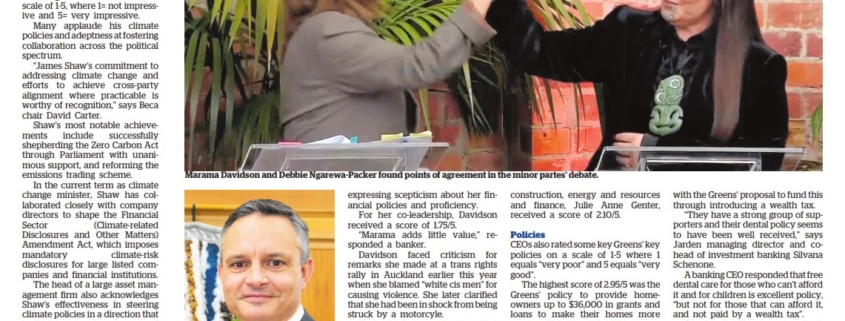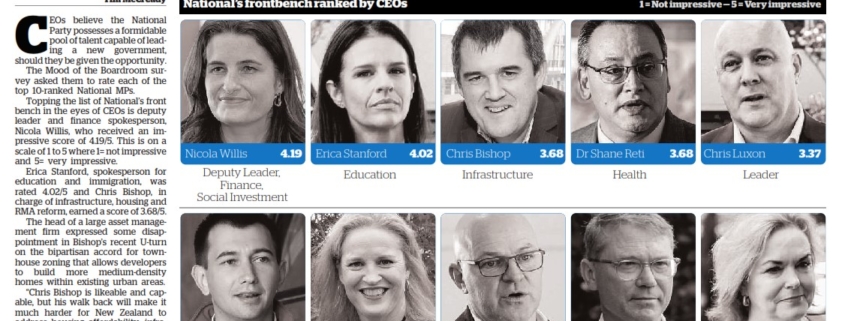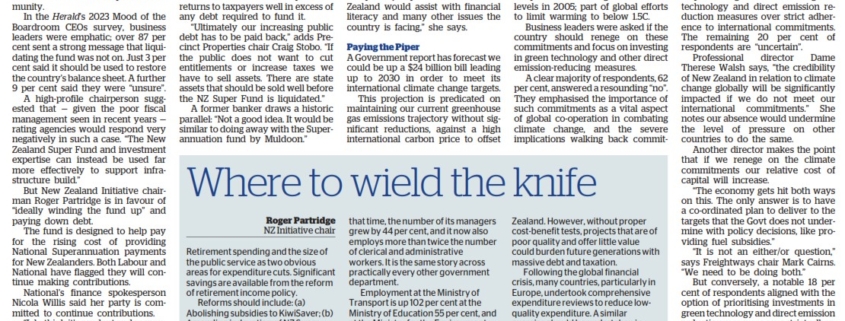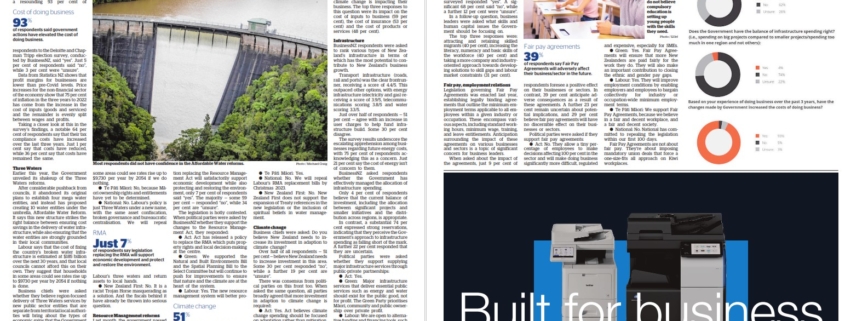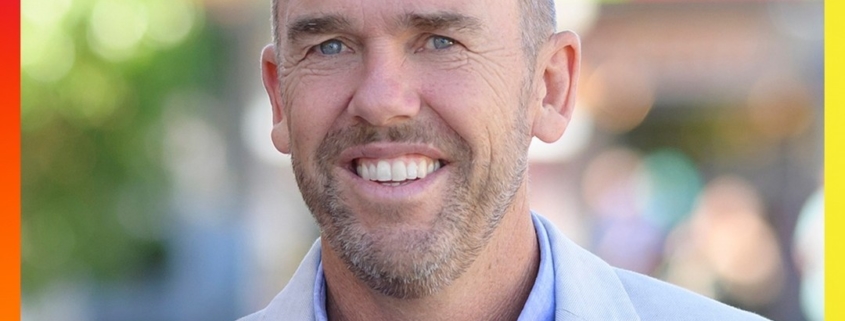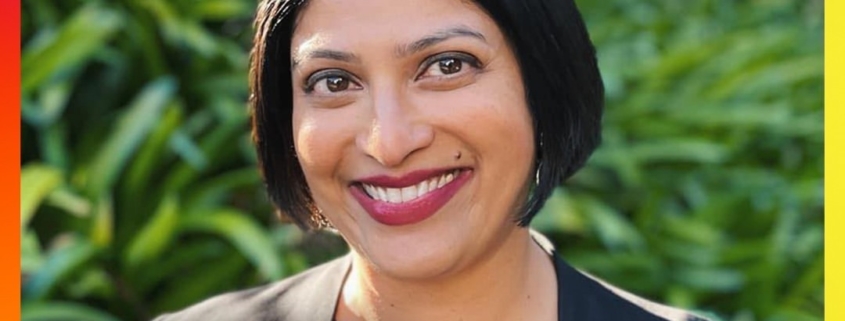Mood of the Boardroom: Escalating costs prove a big concern (NZ Herald)
Business chiefs have sent a strong message to the Labour Government concerning the escalating costs associated with conducting business.
When asked whether government actions over the past three years have elevated the cost of doing business, a resounding 93 per cent of respondents to the Deloitte and Chapman Tripp election survey, conducted by BusinessNZ, said “yes”. Just 5 per cent of respondents said “no”, while 3 per cent were “unsure”.
Data from Statistics NZ shows that profit margins for businesses are lower than pre-Covid levels. Price increases for the non-financial sector of the economy show that 75 per cent of inflation in the three years to 2022 has come from the increase in the cost of inputs (goods and services) and the remainder is evenly split between wages and profits.
Taking a closer look at this in the survey’s findings, a notable 64 per cent of respondents say that their tax compliance costs have increased over the last three years. Just 1 per cent say that costs have reduced, while 36 per cent say that costs have remained the same.
Three Waters
Earlier this year, the Government unveiled its shakeup of the Three Waters reforms.
After considerable pushback from councils, it abandoned its original plans to establish four mega water entities, and instead has proposed creating 10 water entities under the umbrella, Affordable Water Reform. It says this new structure strikes the right balance between ensuring cost savings in the delivery of water infrastructure, while also ensuring that the water entities are strongly grounded in their local communities.
Labour says that the cost of fixing the country’s broken water infrastructure is estimated at $185 billion over the next 30 years, and that local councils cannot afford this on their own. They suggest that households in some areas could see rates rise up to $9730 per year by 2054 if nothing is done.
Business chiefs were asked whether they believe region-focused delivery of Three Waters services by new public sector entities that are separate from territorial local authorities will bring about the types of economic gains that the Government has outlined.
They are not convinced, with 80 per cent of respondents saying it won’t. Only 8 per cent said it will deliver substantive economic gains, while 12 per cent were unsure.
Other political parties were asked whether they support the current Three Waters (Affordable Water) proposal. Their responses are:
- Act: No.
- Green: We are pleased that the Government has increased the number of water entities to ensure a closer connection with communities they serve. But we still have significant concerns that the current proposals don’t do enough to guarantee public ownership and protect nature. The failure to separate stormwater management is another missed opportunity.
- Labour: Yes. The cost of fixing our broken water infrastructure is estimated at $185b over the next 30 years. Local councils cannot afford this on their own, and households in some areas could see rates rise up to $9,730 per year by 2054 if we do nothing.
- Te Pati Maori: No, because Maori ownership rights and entitlements have yet to be determined.
- National: No. Labour’s policy is just Three Waters under a new name, with the same asset confiscation, broken governance and bureaucratic centralisation. We will repeal Labour’s three waters and return assets to local hands.
- New Zealand First: No. It is a racist Trojan Horse masquerading as a solution. And the fiscals behind it have already be thrown into serious question.
Resource Management reforms
Last month, the government passed its Resource Management Act replacement, ending 30 years of the RMA.
Two acts, the Natural and Built Environments Act and the Spatial Planning Act, make way for a new planning regime which aims to cut down the number of plans councils are required to produce.
Environment Minister David Parker praised the simplification offered by the new resource management system.
“At the moment, there are over 100 RMA plans, those are cut down to 16 better plans that will be structured in a similar way and therefore are easier to follow, are made faster and result in more permitted activities, lower land prices, lower consenting costs and better environmental outcomes,” Parker said.
He added it will “save homeowners, infrastructure providers, a lot of money — hundreds of millions of dollars have been here”.
When asked whether the legislation replacing the Resource Management Act will satisfactorily support economic development while also protecting and restoring the environment, only 7 per cent of respondents said “yes”. The majority — some 59 per cent — responded “no”, while 34 per cent are “unsure”.
The legislation is hotly contested. When political parties were asked by BusinessNZ whether they support the changes to the Resource Management Act, they responded:
- Act: Act has released a policy to replace the RMA which puts property rights and local decision-making at the centre.
- Green: We supported the Natural and Built Environments Bill and the Spatial Planning Bill to the Select Committee but will continue to push for improvements to ensure that nature and the climate are at the heart of the system.
- Labour: Yes. The new resource management system will better protect the environment while cutting red tape, lowering costs and shortening the time it takes to approve new homes and key infrastructure projects. It is expected to cut costs to users by 19 per cent.
- Te Pati Maori: Yes.
- National: No. We will repeal Labour’s RMA replacement bills by Christmas 2023.
- New Zealand First: No. New Zealand First does not support the expansion of Treaty references in the new legislation or the inclusion of spiritual beliefs in water management.
Climate change
Business chiefs were asked: Do you believe New Zealand needs to increase its investment in adaption to climate change?
Over half of all respondents — 51 per cent — believe New Zealand needs to increase investment in this area. Some 30 per cent responded “no”, while a further 19 per cent are “unsure”.
There was consensus from political parties on this front too. When asked the same question, all parties broadly agreed that more investment in adaption to climate change is required:
- Act: Yes. Act believes climate change spending should be focused on adaptation rather than mitigation.
- Green: We supported the Natural and Built Environments Bill and the Spatial Planning Bill, to the Select Committee but will continue to push for improvements to ensure that nature and the climate are at the heart of the system.
- Labour: Budget 2023 allocated $6b in initial funding for a National Resilience Plan for infrastructure. The Government also released New Zealand’s first Emissions Reduction Plan in May last year.
- Te Pati Maori: Yes.
- National: New Zealand will need to invest more in future-proofed infrastructure to ensure we can meet the adaptation challenge. National will work in good faith to make sure that cost is appropriately distributed.
- New Zealand First: Yes. New Zealand First was already doing this with the allocations from the Provincial Growth Fund to adaptation initiatives.
Digging into this a little deeper, business leaders were also asked how climate change is impacting their business. The top three responses to this question were its impact on the cost of inputs to business (59 per cent), the cost of insurance (53 per cent) and the cost of products or services (48 per cent).
Infrastructure
BusinessNZ respondents were asked to rank various types of New Zealand’s infrastructure in terms of which has the most potential to contribute to New Zealand’s business growth.
Transport infrastructure (roads, rail and ports) was the clear frontrunner, receiving a score of 4.4/5. This outpaced other options, with energy infrastructure (electricity and gas) receiving a score of 3.9/5, telecommunications scoring 3.8/5 and water scoring 3.3/5.
Just over half of respondents — 51 per cent — agree with an increase in user charges to help fund infrastructure build. Some 30 per cent disagree.
The survey results underscore the escalating apprehension among businesses regarding future energy costs, with 75 per cent of respondents acknowledging this as a concern. Just 21 per cent say the cost of energy isn’t of concern to them.
BusinessNZ asked respondents whether the Government has effectively managed the allocation of infrastructure spending.
Only 4 per cent of respondents believe that the current balance of investment, including the allocation between significant projects and smaller initiatives and the distribution across regions, is appropriate.
In contrast, a substantial 74 per cent expressed strong reservations, indicating that they perceive the Government’s approach to infrastructure spending as falling short of the mark. A further 22 per cent responded that they are uncertain.
Political parties were asked whether they support supplying major infrastructure services through public-private partnerships:
- Act: Yes.
- Green: Major infrastructure services that deliver essential public services such as energy and water should exist for the public good, not for profit. The Green Party prioritises Maori, community and public ownership over private profit.
- Labour: We are open to alternative funding and financing tools, such as public-private partnerships and congestion charging however our current policy precludes PPPs in health, education, and corrections.
- Te Pati Maori: Yes.
- National: Yes.
- New Zealand First: New Zealand First has been reluctant to support public-private partnerships in the past, where KPIs have not been met, but would not rule them out if there was accountable public oversight before and after establishment.
Skills and human capital
Education is heating up to be a major issue during the campaign, with data showing achievement for students is declining. Of the roughly 64,000 students who left school in 2022, only half attained NCEA 3 or above. A quarter left without NCEA 2, considered the minimum level needed to pursue work or further study, while 15 per cent failed to reach NCEA 1.
BusinessNZ respondents were asked whether compulsoryeducation is setting up young people with the skills they need to succeed in the future. Only 21 per cent of those surveyed responded “yes”. A significant 68 per cent said “no”, while a further 12 per cent were “unsure”.
In a follow-up question, business leaders were asked what skills and human capital issues the Government should be focusing on.
The top three responses were: attracting and retaining skilled migrants (40 per cent), increasing the literacy, numeracy and basic skills of the workforce (40 per cent) and taking a more company and industry-oriented approach towards developing solutions to skill gaps and labour market constraints (31 per cent).
Fair pay, employment relations
Legislation governing Fair Pay Agreements was enacted last year, establishing legally binding agreements that outline the minimum employment terms applicable to all employees within a given industry or occupation. These encompass various aspects, including standard working hours, minimum wage, training, and leave entitlements. Anticipation surrounding the impact of these agreements on various businesses and sectors is a topic of significant concern for business leaders.
When asked about the impact of the agreements, just 9 per cent of respondents foresee a positive effect on their businesses or sectors. In contrast, 39 per cent anticipate adverse consequences as a result of these agreements. A further 23 per cent remain uncertain about potential implications, and 29 per cent believe fair pay agreements will have no discernible effect on their businesses or sectors.
Political parties were asked if they support fair pay agreements:
- Act: No. They allow a tiny percentage of employees to make decisions affecting 100 per cent in the sector and will make doing business significantly more difficult, regulated and expensive, especially for SMEs.
- Green: Yes. Fair Pay Agreements will ensure that more New Zealanders are paid fairly for the work they do. They will also make an important contribution to closing the ethnic and gender pay gaps.
- Labour: Yes. They will improve employment conditions by enabling employers and employees to bargain collectively for industry or occupation-wide minimum employment terms.
- Te Pati Maori: We support Fair Pay Agreements, because we believe in a fair and decent workplace, and a fair and decent society.
- National: No. National has committed to repealing the legislation within our first 100 days.
Fair Pay Agreements are not about fair pay. They’re about imposing mandatory union deals that force a one-size-fits all approach on Kiwi workplaces.

